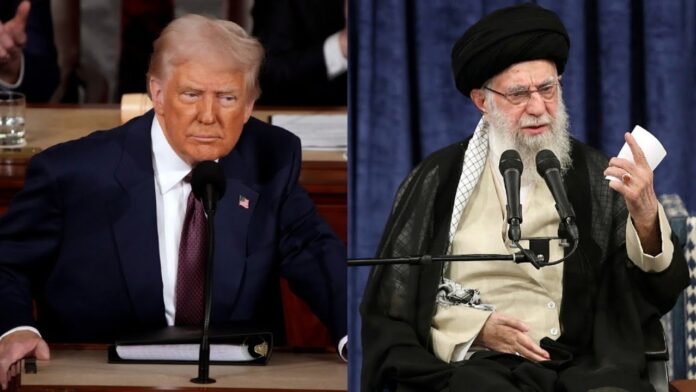US officials reveal Trump personally blocked an Israeli request to assassinate Iran’s supreme leader.
US President Donald Trump reportedly blocked an Israeli proposal to assassinate Iran’s Supreme Leader, Ayatollah Ali Khamenei, amid the escalating conflict between the two nations. According to three American officials who spoke to CBS News, Trump told Israeli Prime Minister Benjamin Netanyahu that killing Khamenei was “not a good idea”.
The conversation allegedly took place after Israel launched its pre-emptive strike on Iranian nuclear and military infrastructure last Friday, igniting an intense round of strikes that have now entered their third consecutive day.
While Trump has not publicly addressed the report, Netanyahu declined to confirm or deny its accuracy during a Fox News interview on Sunday. “There’s so many false reports of conversations that never happened, and I’m not going to get into that,” Netanyahu said. “We will do what we need to do, and I think the United States knows what is good for the United States.”
An Israeli official also told CBS News that Israel generally avoids targeting political leaders directly, focusing instead on military and nuclear figures. “In principle, we do not kill political leaders; we are focused on nuclear and military. I don’t think anyone making decisions about those programmes should be living free and easy,” the official remarked.
Since Friday, Israel has aggressively targeted Iran’s nuclear infrastructure, key military sites, and leadership networks. Iran has responded with its own barrage of missile and drone attacks, turning the long-simmering shadow war into open hostilities that now threaten wider regional stability.
Despite Trump’s veto of the assassination plan, the president has publicly called for Israel and Iran to enter negotiations. Posting on Truth Social, Trump said: “Iran and Israel should make a deal, and will make a deal.” He pointed to his previous diplomatic efforts, including defusing tensions between India and Pakistan, as examples of how he could mediate an agreement.
Yet diplomatic efforts appear stalled. The next round of US-Iran nuclear talks, which had been scheduled for Sunday, were abruptly cancelled. Oman’s foreign minister, Badr Albusaidi, who has served as a mediator, announced the suspension of talks just one day earlier.
According to a Reuters source briefed on the situation, Iran told mediators in Qatar and Oman that it would not discuss any ceasefire or diplomatic resolution while Israeli attacks continued. Tehran remains firmly opposed to any negotiations under fire.
Speaking before his departure for the G7 summit in Canada, Trump reaffirmed US support for Israel but sidestepped questions about whether Washington had requested Israel pause its strikes. The president made clear, however, that any Iranian attack on American targets would trigger a devastating military response.
“If we are attacked in any way, shape or form by Iran, the full strength and might of the US Armed Forces will come down on you at levels never seen before,” Trump warned on Saturday.
Trump has insisted that the United States had “nothing to do” with Israel’s initial strike on Iran. However, behind closed doors, US officials continue to monitor the conflict closely, concerned that further escalation could pull Washington into a broader Middle Eastern war.
Meanwhile, Israeli officials remain adamant that their offensive will continue until Iran’s nuclear and military threat is thoroughly degraded. With no diplomatic breakthrough in sight, the standoff between Israel and Iran grows more volatile by the hour.
